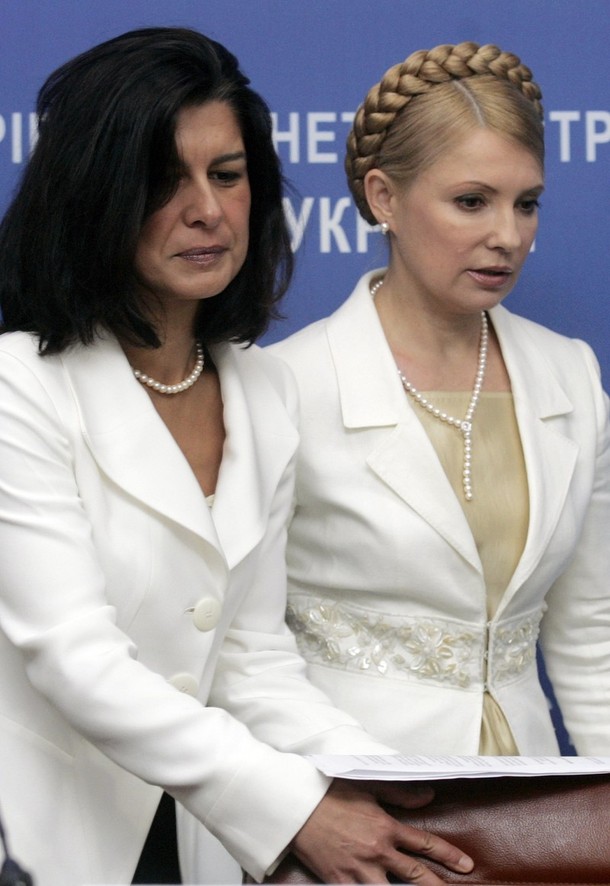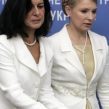
IMF Confirms Sharp Contraction in the Ukrainian Economy
Publication: Eurasia Daily Monitor Volume: 6 Issue: 135
By:

The International Monetary Fund (IMF) completed the second review of its stabilization program for Ukraine on July 10. A visiting IMF delegation recommended that the IMF board grant Ukraine the third $3.3 billion tranche of the $16.4 billion stand-by loan. Kyiv received the previous two tranches of the loan totaling $5.3 billion in November 2008 and May 2009.
Indeed, the results of the review were a setback for the government of Prime Minister Yulia Tymoshenko. Less money will arrive than she expected. The third tranche, if approved by the IMF board later this summer, will be $500 million less than the $3.8 billion that she wanted. Moreover, the IMF presented new conditions in addition to those that the government previously failed to meet, such as pension reform and improving the management of the state-owned oil and gas behemoth Naftohaz Ukrainy. Now the government will have to increase domestic gas prices every quarter in order to lower Naftohaz’s budget deficit. This will be painful not only for the domestic industries that rely heavily on gas, but also for the population whose real incomes plummeted by 13 percent in the first quarter of 2009 alone.
Possibly the most painful setback for Tymoshenko’s government was the correction of the IMF’s forecast for Ukraine’s economic performance in 2009. The IMF now expects GDP to contract not by 8 percent as it originally expected, but by a staggering 14 percent -which is another confirmation that the Ukrainian economy was severely damaged by the global recession. Tymoshenko might eventually admit that her forecast for 0.4 percent GDP growth, on which the state budget was based, was overly optimistic as her arch-rival President Viktor Yushchenko warned when the budget was passed late last year. Consequently, the IMF expects the state budget deficit to jump from 4 percent, as agreed with Tymoshenko earlier, to 6 percent. On the positive side, the IMF corrected its forecast for inflation from 16 percent to 13 percent (www.imf.org, July 10).
The revision of these forecasts was due to the negative developments in the first quarter of 2009, when the economic downturn was more pronounced than expected, as the IMF explained. Ukraine’s GDP fell by 20.3 percent in the first quarter, the worst contraction in the region and probably the fastest quarterly contraction of the national economy since 1991.
The IMF’s forecast for GDP was its most pessimistic so far. In late June a pool of local analysts forecast a 12.8 percent decline (Interfax-Ukraine, June 22). The European Bank for Reconstruction and Development (EBRD) said in early May that it expected Ukraine’s GDP to contract by 10 percent in 2009. There has been more optimism concerning 2010, with the IMF and the World Bank expecting 1 percent growth and the EBRD forecasting zero growth. Taking into account the low GDP figure for the first quarter, which was made public by the Ukrainian statistics committee only in late June, other international financial organizations should also correct their forecasts.
Despite these gloomy predictions, the IMF mission praised the Ukrainian government, noting that, "macroeconomic and financial policies in Ukraine have been broadly on track." The targets agreed with the IMF during the first review in the spring regarding base rates and the central bank’s reserves were met, and the government "made good progress in the resolution of the systemic problem banks," the IMF said (www.imf.org, July 10). Between the first and second reviews of the IMF stabilization program, the government completed the bailout of three mid-size banks out of the five agreed with the IMF. However, the bailout of two larger banks, Nadra and Ukrprombank, is far from complete since the government has refused to buy them until after they restructure their foreign debts.
Ahead of the January 17 presidential election, the IMF has inevitably become a factor in domestic politics. It refused to allow Tymoshenko to use the whole $3.3 billion tranche of its loan to cover the budget deficit, forcing her to tighten fiscal discipline, which means that the demand of the opposition Party of Regions (PRU) to increase wages and pensions cannot be met (EDM, July 8). This is a boon to the PRU’s presidential candidate Viktor Yanukovych, who will not miss any opportunity to portray himself as a defender of the people’s interests, while his main rival Tymoshenko has accepted the conditions of the "foreigners" from the IMF.
The PRU also accused the IMF of indirect interference in the election campaign. PRU shadow finance minister Mykola Azarov claimed that the IMF continues to assist the government in order to help Tymoshenko’s party stay in power. He said that when the PRU was in power, the IMF did not provide assistance to Ukrainian governments ahead of crucial elections. "The IMF would tell us in an election campaign that it would take no decision until after the election," said Azarov. He noted that Tymoshenko’s government has been aided by the IMF despite its failure to meet IMF conditions, in particular on the budget deficit and on reforming Naftohaz Ukrainy. According to Azarov, this provides proof that the IMF is guided by political considerations (UNIAN, July 6).




